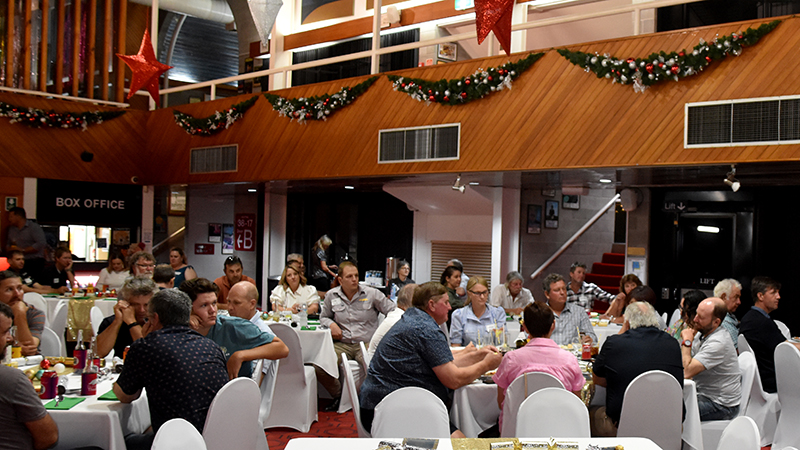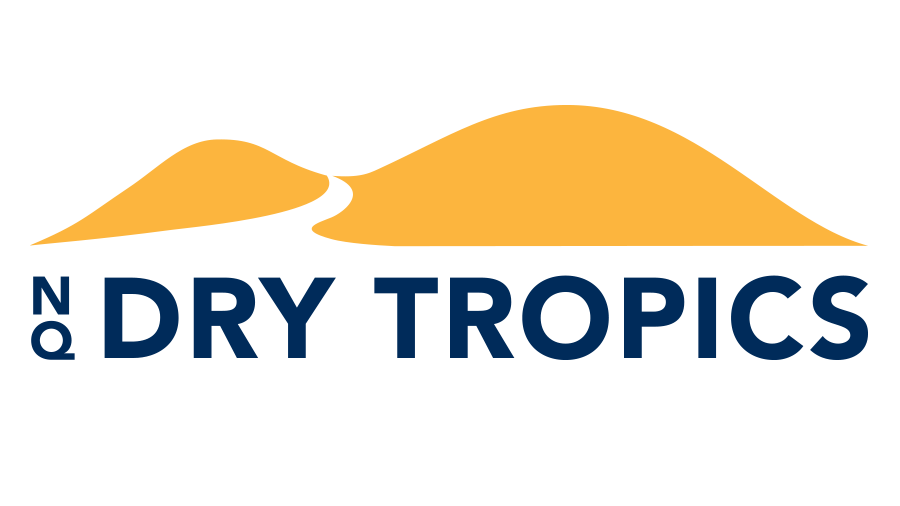Lower Burdekin Water Quality Program
Sound agronomic and water quality advice underpinning enduring catchment-scale improvement.
(2020-2024)
AT A GLANCE
Four on-ground projects were delivered by program partners:
- Burdekin Irrigation Project (BIP)
Led by Sugar Resarch Australia (SRA) - Precision to Decision (P2D)
Led by Farmacist Pty Ltd - Project Bluewater 2
Led by Farmacist Pty Ltd - Major Grants
Led by NQ Dry Tropics
The program was also supported by Burdekin Bowen Integrated Floodplain Management Advisory Committee (BBIFMAC) who undertook comprehensive monitoring to verify water quality outcomes.
OUTCOMES
49,410kg of dissolved inorganic nitrogen (DIN) prevented from impacting the Great Barrier Reef, at an overall cost of $317/kg
Waterway pesticide risk reduced by 1,607,971 Risk Units/ha
Pictured at a cane innovations event are, from left, Terry Granshaw (District Manager, Sugar Research Australia), grower Aaron Linton, Great Barrier Reef Foundation Program Manager Carolyn Trewin, NQ Dry Tropics Program Manager Rob Hunt and Project Officer, Sugar Research Australia Armin Wessel.
Umbrella approach delivers results
Between 2020 and 2024, more than 100 cane growers have improved irrigation, nutrient and pesticide management, resulting in widespread practice change and significant water quality improvements.
The Lower Burdekin Water Quality Program (LBWQP), funded through the partnership between the Australian Government’s Reef Trust and the Great Barrier Reef Foundation (RTP), supported growers to adopt sustainable farming practices to reduce dissolved inorganic nitrogen (DIN) and pesticides entering the Great Barrier Reef, while maintaining or improving profitability.
Primary objectives were to:
-
-
- improve water quality;
- enhance agricultural practices;
- address barriers to land management practice improvement and stewardship;
- improve catchment function; and
- support the productivity and profitability of sugar cane farms in the Lower Burdekin.
-
To ensure regional consistency, cohesion, and collaboration, NQ Dry Tropics managed the program rollout, providing ongoing support to delivery partners and hosting regional activities. Involving local partners in the design, planning and delivery of the regional program helped ensure maximum support and adoption.
Key program activities included:
- implementing best management practices (BMPs) for fertiliser, pesticide, and irrigation;
- implementing an extensive water quality monitoring program to help verify improvements; and
- undertaking widespread stakeholder engagement.
BURDEKIN IRRIGATION PROJECT
PRECISION TO DECISION
MAJOR GRANTS
FURTHER READING
EOY Celebration

There was plenty of festive fun and laughter at the Burdekin Theatre last week as nearly
60 growers, extension officers and service providers attended the NQ Dry Tropics End Of Year Sugar Celebration.
READ MORE>>






